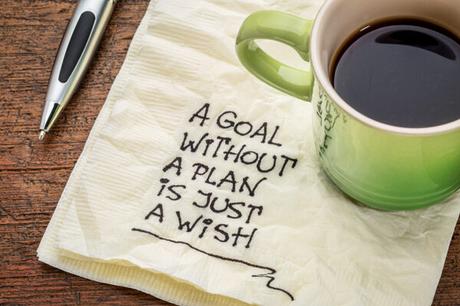Last Updated on by Jeremy
Disclaimers: Living the Dream uses demographic data, email opt-ins, display advertising, and affiliate links to operate this site. Please review our Terms and Conditions for more information. Listed prices and attraction details may have changed since our visit and initial publication.
Like most people, our newfound lifestyle change caught us somewhat off guard. Not being able to travel, go out, or do most of our favorite activities left us with, well, a lot more time than we were used to.
In a way, I've been setting myself up for this moment, albeit inadvertently, for quite a bit of time. I've been working remotely for 500+ days, and during that time have had many long stretches without interacting with a single human other than my wife, occasional restaurant employee, and friends on social media, of course. In January 2020, I took that a step further by taking more-or-less the entire month off work altogether and pursuing a digital detox.
Then this happened.In a way, that month off work helped me streamline my business in a number of ways and freed up valuable time to work on new projects and focus on self-care. Coincidentally, now that our website traffic has decreased 75% practically overnight, with an income drop to match, I realize that my mental shift in January was good timing in making sure that I don't simply lose it and panic right now.
Today, I want to dive into more about how I adjusted my mindset to focus on goal setting during this time- both in reworking my daily routine to minimize the hours on existing projects and in coming up with plans for new projects moving forward.
Step One - It is Okay to Breathe

Before we start, I want you to take a moment and breathe. Close your eyes. Stop thinking. Just breathe. Life, and the rest of this article, will still be here when you open them. We're not in a rush. Do this now.
Ready? Ok. We can continue.
We are in for a long road ahead, and there are many uncertainties that we will face day by day. But in the meantime, when things are looking overwhelming, we all need to take a moment to stop and breathe.
I mean this literally in terms of literally closing your eyes and breathing, but also figuratively. When things are looking their bleakest, we are seeing that there is an abundance of one thing that will carry on no matter what is going on around us- time.
Even in the direst of scenarios, a bit of self-care is important. Whether you only can allocate enough time to close your eyes and breathe, or you're a bit more flexible to start a new workout routine, pick up a hobby, or simply allocate time to go on a walk around your neighborhood (if it is safe to do so, of course), we all need a bit of a break from the world around us to not lose our heads.
It would be impossible for anyone to go full steam ahead right now without predetermined breaks, so it is worth taking some time to plan on activities that will be fully for you, even if just for an hour or two a day (and if you can, at the same time each day to force a hard stop on your projects). Some we're looking at right now include the following:
- Meditating after Waking Up
- Working Out Mid Morning
- Learning an Instrument in the Evening
- Watching TV & Movies at Night
- Reading Before Bed

If you've always had a goal in mind for self-improvement, now is the time to consider looking at doing it. Not for any money-making initiative or anything like that, but rather to have moments to yourself to break up all the craziness. You may only be able to have enough time for one. Or three. Or five. Don't overdo it, and instead pick a few you really can dive into.
As I learned in my time off in January, when doing these activities it is also helpful to have an end goal in mind. Working out is an activity, not an end goal. Losing 20 lbs is. Getting your arms and legs toned is. Finding that elusive ab is an end goal as well. Learning an instrument is an activity, not an end goal. Perfecting barre chords, fingerpicking, or simply learning the chords to a single song is. Reading is an activity, not an end goal. Reading a book a week is an end goal.
Think in terms of your end goals for these activities and work your way back on what you need to do to get there. This concept will pop up again and again in this article, so start thinking in this mindset now for the fun things. It really will help with the work.
Step Two - What Are Your Work Goals Right Now?

I told you it'd pop up again. Now we're going to talk about work, and just as with your hobbies, thinking of your end goals in mind is important in these times.
Obviously, if you are working for a corporation, your end goals may be defined for you by the company. But if you work for yourself or have free reign of your own department, this becomes more of an important question.
We have always tried to think about our goals in two key areas, and since we're quite practical people you shouldn't be surprised when you hear them: money now and money later.
Money now is defined as anything you can do in order to earn money today. You may not get paid today in return, but income should be relatively quick to follow. Working for a company is money now- you'll get your check in a week or two. Freelancing could be the same thing- you'll get your check sooner rather than later, sometimes immediately. What can you do with your skills in order to get money now?
Money later is just the opposite. What can you work on now that may not pay off until weeks, months, or years down the road? Investing is a classic example of money later, although investing right now may be risky (we are not experts here). We view our blogs as money later, as the sum total value of our traffic may not be realized for months or years. Writing a book may be the same idea, as it could be months or more until it reaches the market and brings in revenue. Do you have any ventures that you can start now that will help secure your financial future with money later?
After coming up with ideas, it is time to think about them in reverse just like your hobbies. Having a business is an activity. Financial security is an end goal. Now you need to take some time and think of the steps you need to take in order to get there.
In a single article, I cannot help you answer these questions. You need to look at your own hobbies, skills, and passions and determine what options are out there, pathways that may be available for income, and their difficulties and chances of success (when in doubt, always assume it will be twice as hard and take twice as long for any achievable goal, and that some are not feasible at all).
Likewise, you need to look at your financial forecasts and determine which ones should take priority. If you have financial security now but are worried about the future, your money later tasks may need to have provisions for three months, six months, or twelve months out. If you have financial security coming later but are in trouble now, prioritize immediate opportunities.
Some ideas may still need to remain dreams, and that is okay. But in these times we all may need to take a look at ideas for money now and money later and see what all we can do.
For my own personal outlook, I have mapped out the following:
Are any of these guaranteed to work? The answer will be hard to hear. No, nothing is guaranteed. But by thinking of your needs and goals in money now and money later, you may end up with direction on how to proceed, and that is a start.
Step Three - Compartmentalize Your Time
- Money now: I am thankful that our websites operate primarily on passive income. Even though our earnings have dropped 75% overnight, what this means is that I still have two solid months of checks coming in before I have immediate concerns over money.
- Money later: Due to the flexibility in the money now category, I am prioritizing income in three months time as well as in the six-to-twelve month forecast. In three months, I plan on launching a guidebook for our local blog to shore up revenue insofar as its ethical to sell it. In six to nine months, I hope to have a third website built and gaining traction in a different niche to offset the fact that people cannot go outside or travel. Even just an extra $25/day here would be a solid jump in the interim.
- Fail-safe: While I have not started thinking of it just yet, it is also worth noting that I will need to make fail-safe provisions for if the three-month and six-month goals fail. While I'm envisioning success, if things are looking bad then I will have to pursue other options for revenue, be it getting a day job, part-time job, or selling alternative services for more money now income.

Compartmentalizing your work is probably the easiest step to talk about, but the hardest to actually achieve.
In this step, it is all about clustering your work in order to be as productive as you can be at any given task and minimizing distractions at the same time. Don't take eight hours to do a job while goofing off on Facebook if you can hit it hard and be done in two. This frees up more time to do other projects (money now or money later ones) and was more or less my biggest takeaway from The 4-Hour Workweek.
This is especially crucial these days. The world may seem like it is collapsing, but time is still in abundance. What you make if that time is up to you.
I very quickly learned that I do not need to haphazardly spend eight hours a day running my two websites. They ran themselves just fine when I worked only two (and, in fact, they'd probably hobble along on near zero). Sure, I didn't get to every task I had in mind, but by prioritizing the essentials and minimizing distractions I was able to cut down the amount of time I had to work considerably, thus freeing up times for new money later projects.
Sadly, there is no one-size-fits-all approach for this. Some jobs require eight hours of non-stop work. Others don't. It really depends on your unique scenario; however, if you are already thinking of starting something new, especially for money later goals, odds are good you can stand to improve on this in some capacity.
So, what is a good way to start? Tie them into your hobbies. There is a reason I have mine spaced out throughout the day. I work on specific tasks in the morning (typically social media and writing articles to keep these sites going) and give myself two hours to finish everything. By the time 10 am rolls around, I stop and go workout. I pick up my guitar almost like clockwork at 5 pm when I want to stop working on another task (which in the afternoon is often my new projects), and continue like that throughout the night.
This is something that will always be a work in progress. Distractions happen. You may catch yourself looking at the news, checking Facebook, or talking to a friend while working. It happens. It is fine. But by giving yourself breathing room for you time, in whatever way that means for you, you have an inherent deadline for hitting your more pressing goals in the short term.
Whether you can allocate full days to your projects, or just a few hours, compartmentalizing your projects will help you stay more focused on the end goal- money now or money later.
Step Four - Commit to Your Plan

The final step is to put it all together, commit to it, and get started.
This step is meant to be more of a conscious decision of when to pull the trigger rather than saying you must start on everything today. The previous steps outlined in this post will require some thought, and you may need to take some time to research and plan the best course of action for your needs.
The problem here is that you may get into decision paralysis and never make the decision to go full steam ahead on any projects. Give yourself a deadline on when to make decisions, write it down, put it on your calendar, and work on researching and planning for the time being before reaching the date to decide to act.
It is also okay if you decide not to act, but we've seen time and time again that too many people take the mindset of "I'll get to eventually" rather than saying "I start now or this is not happening". Commit to a deadline as to when you need to decide on the latter and stick to it.
Overall, this four-step process really did a lot for me in terms of helping prioritize my goals and give me clear direction moving forward. While I did this before the current climate fell into place, I look back on what I did before and realize it was an even more crucial thought process all things considered.
Do you have any more steps to add to reworking goals and establishing a routine? Comment below to share!
